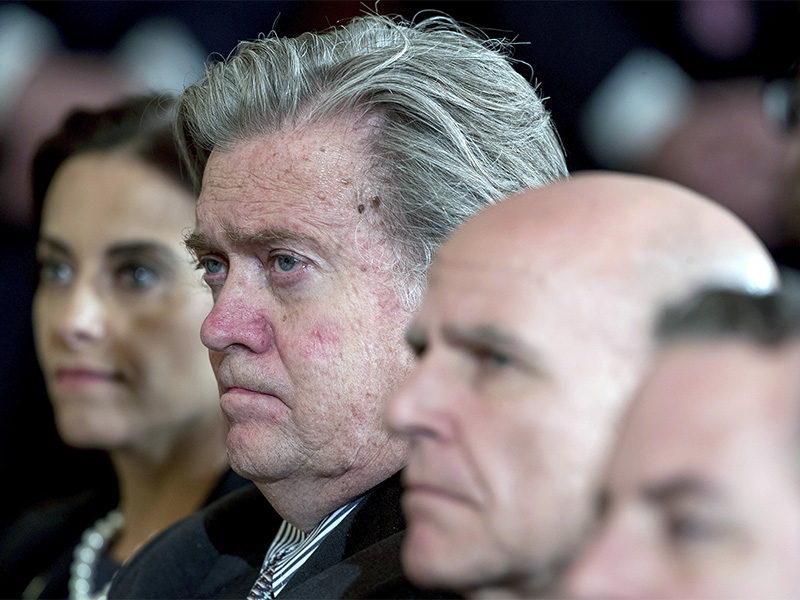
A few days ago, my estimable new RNS colleague Tom Reese put in a kind word for Steve Bannon, suggesting that the religious left will miss Trump’s departed strategist because he alone in the White House shared the left’s critique of global crony capitalism on the one hand and libertarian economics on the other.
Not that Reese gets carried away. Bannon’s problem, he argues, is that he cannot recognize the role of government regulation in assuring a more humane capitalist order.
No doubt. But that still may be too kind.
The evidence that Reese (like most other commentators) cites for Bannon’s better economic angels is from a talk he Skyped into a meeting of the conservative Catholic Human Dignity Institute held at the Vatican in the summer of 2014:
So I think the discussion of, should we put a cap on wealth creation and distribution? It’s something that should be at the heart of every Christian that is a capitalist — “What is the purpose of whatever I’m doing with this wealth? What is the purpose of what I’m doing with the ability that God has given us, that divine providence has given us to actually be a creator of jobs and a creator of wealth?”
I think it really behooves all of us to really take a hard look and make sure that we are reinvesting that back into positive things. But also to make sure that we understand that we’re at the very beginning stages of a global conflict, and if we do not bind together as partners with others in other countries that this conflict is only going to metastasize.
Notice that there’s no evidence of support for either government regulation of wealth or the kind of private charity customarily advocated by anti-welfare state types. The “positive things” capitalists should be “reinvesting” in, we know from Bannon’s other work, is investment in economic activity at home.
Such “enlightened Capitalism” — investment presumably undertaken voluntarily against pure bottom-line calculation — he believes to be the result of Judeo-Christian values that have been under assault in the West for several decades.
Not that we, America, can go it alone. National “partners” are needed to defend what he habitually calls “the Judeo-Christian West.” The latter is threatened from the inside by global elites and from the outside by “Islamic Fascism” and, even more, by Chinese-dominated East Asia.
Bannon’s strategic vision thus consists of economic nationalism joined to a simplified version of Samuel Huntington’s post-Cold War “clash of civilizations.” As he told The Economist in a post-White House interview last week, “I want the world to look back in 100 years and say, their mercantilist, Confucian system lost. The Judeo-Christian liberal West won.”
During the 1930s, “Judeo-Christian” came into American public discourse as a way of opposing Fascist anti-Semitism. After World War II, it became the watchword of an America standing for human freedoms against Communism.
With the rise of the religious right, it was transformed into a synonym for traditional sexual mores. In the Bannon-Breitbart world view, it has been reduced to the underpinnings of economic nationalism.
Call this the degradation of the Judeo-Christian dogma.






